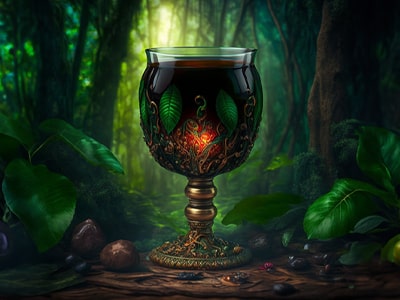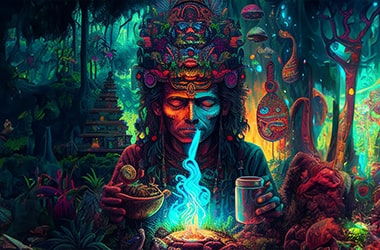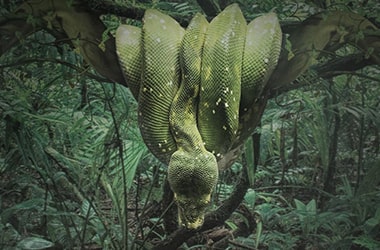Ayahuasca, the Nature of Life
Mother Ayahuasca is a divinated entheogenic sacrament that allows for a direct encounter with divinity, assisting in the development of consciousness, expression of devotion, and the elevation of spirit.
The word entheogen, derived from ancient Greek, is a combination of entheos and genesthe. Entheos literally means – God Within or God Inspired. It holds the same root as the English word Enthusiasm, which means "in spirit" or inspiration. Genesthe means to generate; thus, these words combined mean "That which generates God's Inspiration within."
Ayahuasca has been used within religious and spiritual traditions and practices for thousands of years as a central entheogenic sacrament. The word sacrament is widely used and explained within the Christian theology:
Sacraments are external signs of our internal faith; they are practices that engage our senses (vision, hearing, touch, smell, and taste) to regularly remind us of God's grace. Taking sacrament is an opportunity for self-reflection and requires taking full responsibility for one's actions and conscience.
As beautifully expressed by Father Daniel O'Reilly of the St. Bartholomew, Roman Catholic Church:
A sacrament is an external sign given to us by Jesus Christ that points to an internal change or conversion. It is a visible sign of God's grace. Sacraments and faith are linked together in that sacraments pre-suppose, nourish, fortify, and express faith. They build up the body of Christ, the Church.
Link to source - What is a Sacrament
And so, within our entheogenic context, Ayahuasca, as a sacrament, can be related to in the exact same way. It is ingested in an external, visible, and tangible form, bringing about profound internal transformation and change. It engages with all five physical senses and, through a deep process of internal self-reflection, assists us in understanding ourselves, our conscience, our morals, and our behaviors, leading to a direct and profound experience of God's grace.
This lengthy and arduous process of making the sacrament, called in Portuguese ‘Feitio,’ is considered to be Divine Alchemy, explains our Padrinho, Sergio Negri. It consists of combining five different elements – the vine, Jagube, the leaf, Chacruna, water, fire, and the human heart. The vine and the leaf represent the masculine and feminine principles; with the medium of water, they are fused or connected with the power of the heat of fire. But explains Padrinho Negri, the fifth element, the human heart, allows this process to transform from a process of cooking to a sacred act of Divine Alchemy.
The process requires a group of devoted hearts working together in harmony and humble service, pouring devotion, prayer, and intention into the sacrament. Calling in the spirit with prayer and devotion, asking for the awakening and expansion of consciousness, asking to access and remember our Divine Plan and the reason for which we have chosen this life.
The leaf, also called ‘The Queen,’ represents the feminine force for self-healing and light; it is brought to fusion with the vine - Jagube, the masculine, emerging from the earth, growing upward in spirals, twirling around a tree, symbolizing the strands of our DNA, and the spiraling and cyclical nature of evolving consciousness. The vine elevates, and the leaf illuminates the elevation, working in balance and harmony to awaken our spirit.





